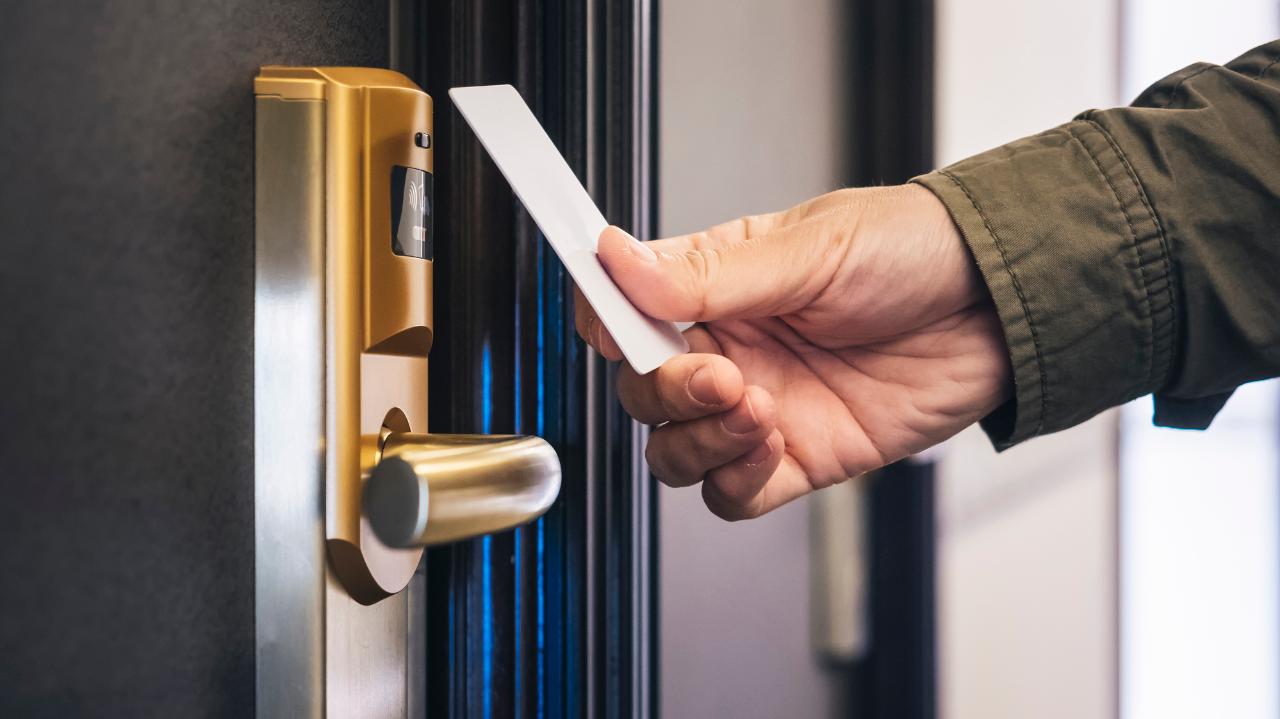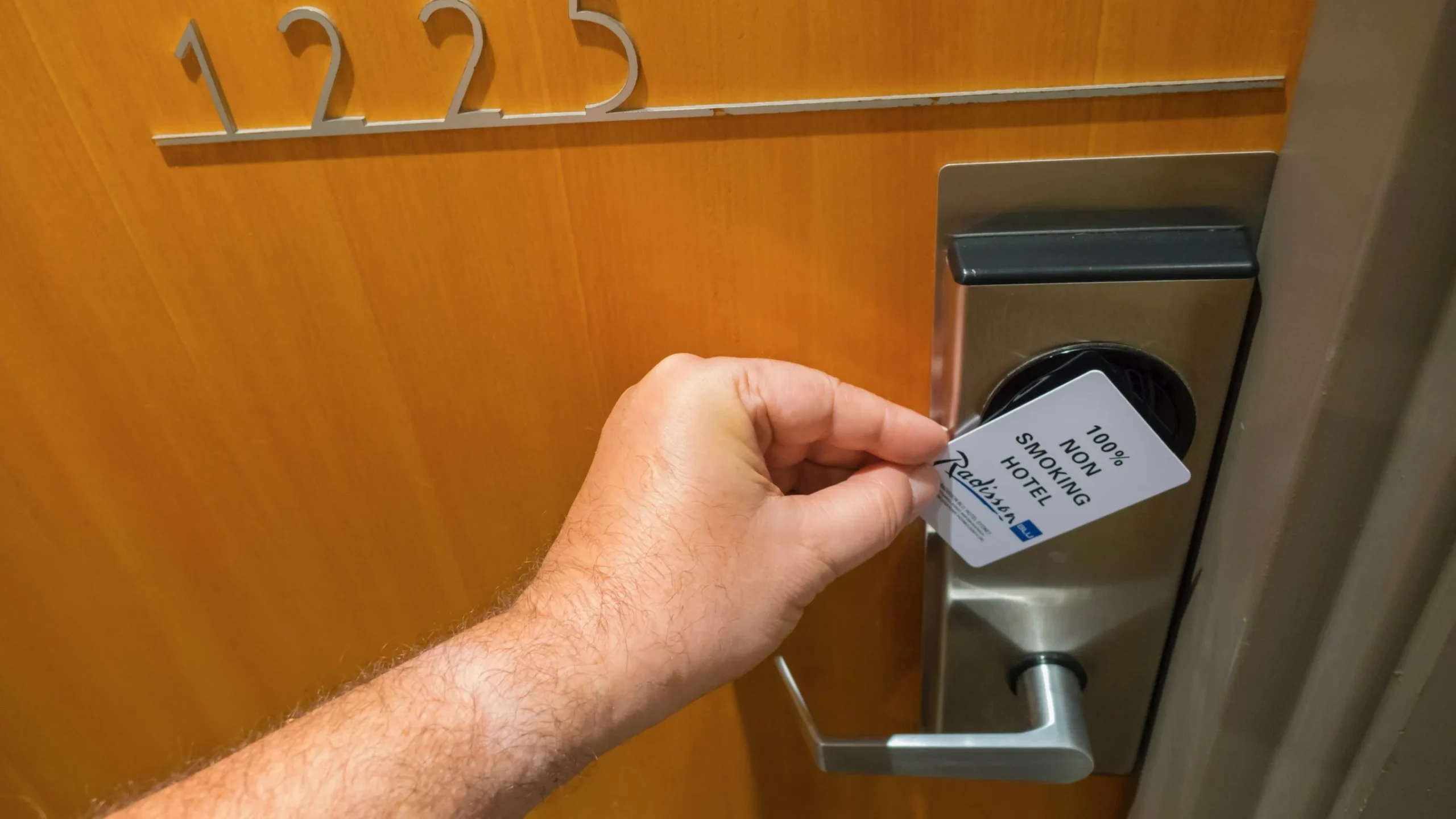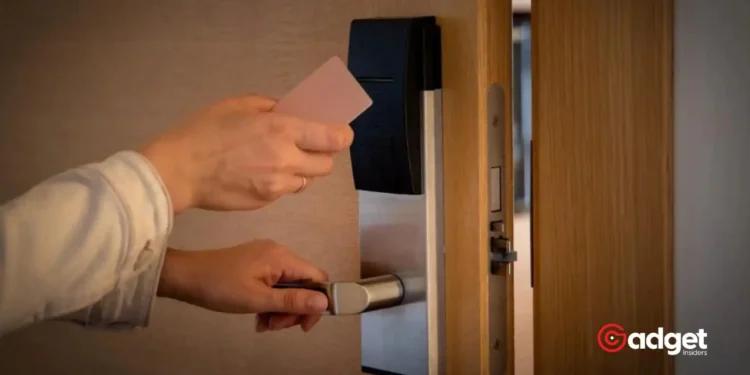In an era where everything from your fridge’s temperature to your front door lock is controlled digitally, the allure of convenience is undeniable. The recent security breach of Saflok’s hotel lock system, which left three million hotel room locks vulnerable, serves as a stark reminder of the potential perils that come with this convenience. This incident not only underscores the ongoing cybersecurity issues but also raises crucial questions about the security measures embedded within our everyday technologies.

A Deep Dive into the Vulnerabilities of Modern Hotel Lock Systems
The breach at Saflok, a well-known name in hotel security systems, is not an isolated event. It follows the notable MGM hack last year, orchestrated by the “Star Fraud” gang, which resulted in a staggering potential loss of $30 million. The recent incident exposed a critical flaw in the RFID and encryption mechanisms that could allow unauthorized access to hotel rooms in a matter of seconds. This vulnerability was identified by ethical security researchers who demonstrated how easily and quickly these systems could be manipulated. They revealed that acquiring any keycard, modifying it with a $300 device, and then creating a master key could grant access to any room secured by this system.

The Pitfalls of Ignoring Security in the Race for Digitalization
Today’s trend of prioritizing digital convenience often overshadows the essential aspect of security. The move from physical keys to digital solutions has introduced new vulnerabilities. The illusion of security with physical keys was somewhat reliable because duplicating a key required physical access. However, digital keys open up new avenues for security breaches without needing physical presence, as evidenced by the increasing incidents of vehicle thefts through digital manipulation. This situation calls into question whether the convenience offered by these digital systems is worth the security risks they introduce.
Bad news: That hotel lock hack is still being used in burglaries, months after lock firm Onity's fix http://t.co/MEHlNqPDcr
— Forbes (@Forbes) May 15, 2013
A Wake-Up Call for the Hospitality Industry and Beyond
The implications of the Saflok system breach extend beyond the immediate threat to hotel security. Hotels rely heavily on the trust of their guests to sustain their reputation and business operations. A breach like this not only risks the safety of guests but also exposes the hotels to potential lawsuits and necessitates costly security upgrades. Moreover, it serves as a crucial lesson for manufacturers of digital lock systems, challenging the reliability and security of their products.
Reevaluating the Role of Security in Digital Technologies
For those involved in security and digital technology, this incident should act as a clarion call to reassess the integration of security measures in technological innovations. The incident highlights the inherent vulnerabilities that come with digital systems, from smart home devices to hotel locks. Moving forward, it’s vital to ensure that the drive for convenience does not come at the expense of security and privacy. This may mean taking a step back from further digitization until robust security measures can be guaranteed.
The Saflok incident not only highlights the vulnerabilities inherent in modern technological advancements but also serves as a reminder of the constant need to balance innovation with security. As we continue to integrate digital solutions into every aspect of our lives, it is imperative that we remain vigilant and proactive in safeguarding our privacy and security. Only then can we truly benefit from the conveniences of technology without falling victim to its potential pitfalls.










